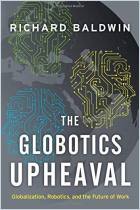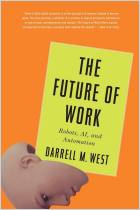
Ghost Work
How to Stop Silicon Valley from Building a New Global Underclass
ISBN: 9780358120575
Pages: 288
Recommendation
Researchers Mary L. Gray and Siddharth Suri detail an invisible segment of the labor market: people who perform “ghost work” or “on-demand” labor in the technology industry that algorithms and AI alone can’t do. The authors reveal the flaws in how society undervalues gig work and part-time jobs. They draw a historical line from marginalized workers doing piecework in sweatshops to today’s gig workers, an important analogy since on-demand work is likely the future of employment. Gray and Suri advocate legal and societal changes to make gig work viable for workers and businesses.
Summary
About the Authors
Mary L. Gray is a senior principal researcher at Microsoft, a fellow at Harvard’s Berkman Klein Center for Internet and Society, and a faculty member at Indiana University’s School of Informatics, Computing and Engineering. Senior principal researcher Siddharth Suri was a founding member of Microsoft Research, New York City, before joining the Human-Centered AI group in Microsoft Research, Redmond, Washington.























Comment on this summary or Start Discussion